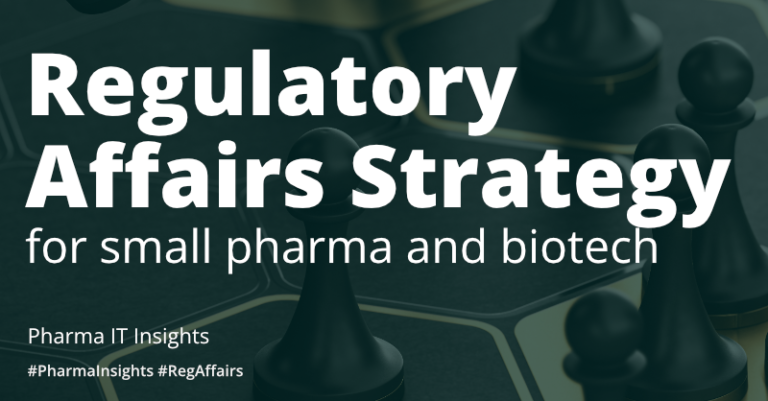
Share on email
Share on linkedin
Share on facebook
Share on whatsapp
Share on twitter
By Anne Louise Kirkegaard
July 7, 2024
By Anne Louise Kirkegaard
July 7, 2024
Navigating the complex landscape of regulatory affairs (RA) is critical for pharmaceutical and biotechnological companies. Whether you’re a startup biotech firm or an established pharmaceutical company, developing a robust RA strategy is essential. This Insight delves into the essentials of RA, focusing on strategies suited for smaller pharma and biotech firms and the pivotal role of RA specialists.
Regulatory affairs in the pharmaceutical and biotech industries encompasses the broad set of activities involved in ensuring compliance with the regulations and laws governing medicines and medical devices. The core objective of RA professionals is to facilitate the smooth approval, registration, and eventual market launch of products while ensuring compliance with the applicable legal framework. This includes everything from drug development and clinical trials to marketing approvals and post-market surveillance.
Key Responsibilities of a Regulatory Affairs Specialist
RA specialists act as the crucial link between companies, regulatory authorities, and consumers. They prepare and submit documentation needed for regulatory approvals, guide product development in compliance with legal requirements, and ensure that a company’s products comply with all regulations and laws.
Developing a solid RA strategy involves several key components:
Regulatory Planning
This involves understanding the regulatory requirements and pathways in the target markets and planning the development process to meet these requirements. It includes content and timelines for submissions, approval processes, and post-market obligations.
Documentation and Submission Management
Proper documentation is critical. This includes preparing and managing submissions such as investigational new drug applications (INDs) and marketing authorization applications (MAAs).
Compliance Monitoring
Ongoing monitoring to ensure compliance with regulatory requirements throughout the product lifecycle is essential. This includes staying updated with changes in regulations and ensuring that products continue to meet safety and efficacy standards.
Importance of a Regulatory Affairs Strategy
Having a well-defined RA strategy can mean the difference between success and failure. It ensures compliance with legal and scientific standards, minimizes the risk of costly delays, and enhances the likelihood of successful product approval. For these reasons, an effective RA strategy can also be a significant competitive advantage for smaller companies.
Small pharma and biotech companies, often characterized by limited resources and specific expertise, face unique challenges in developing effective RA strategies. Here’s how smaller firms can enhance their RA frameworks:
For small pharmaceutical and biotech companies, crafting a solid RA strategy is not just beneficial; it’s a necessity for survival and success. Hiring skilled external RA specialists can help bridge the gap in expertise and provide strategic insights that align with both the company’s goals and regulatory requirements. As the pharmaceutical landscape continues to evolve, so too must the strategies that govern its regulatory affairs.
Our regualtory affairs specialists have experience helping customers identify and close compliance gaps, and craft RA strategies that are robust and fit-for-purpose. Our consultants can provide tailor made support to help you ensure compliance.
You can contact our team directly by clicking the button below.


Anne Louise Kirkegaard is Pharma IT’s Director of Regulatory Affaris. She holds more than 20 years’ experience in the biotech and pharmaceutical industry working with Regulatory Affairs in development, registration and post-approval of drug products, drug-device combination products and cosmetics. Anne Louise has solid experience as a leader, project leader and regulatory affairs specialist from start-up biotech companies as well as small- and midsize pharmaceutical companies working on international development projects in global teams.